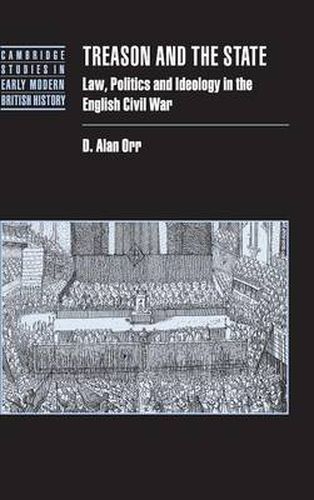Readings Newsletter
Become a Readings Member to make your shopping experience even easier.
Sign in or sign up for free!
You’re not far away from qualifying for FREE standard shipping within Australia
You’ve qualified for FREE standard shipping within Australia
The cart is loading…






This study traces the transition of treason from a personal crime against the monarch to a modern crime against the impersonal state. It consists of four highly detailed case-studies of major state treason trials in England beginning with that of Thomas Wentworth, first Earl of Strafford, in the spring of 1641 and ending with that of Charles Stuart, King of England, in January 1649. The book examines how these trials constituted practical contexts in which ideas of statehood and public authority legitimated courses of political action that might ordinarily be considered unlawful - or at least not within the compass of the foundational statute of Edward III. The ensuing narrative reveals how the events of the 1640s in England challenged existing conceptions of treason as a personal crime against the king, his family and his servants, and pushed the ascendant parliamentarian faction towards embracing an impersonal conception of the state.
$9.00 standard shipping within Australia
FREE standard shipping within Australia for orders over $100.00
Express & International shipping calculated at checkout
This study traces the transition of treason from a personal crime against the monarch to a modern crime against the impersonal state. It consists of four highly detailed case-studies of major state treason trials in England beginning with that of Thomas Wentworth, first Earl of Strafford, in the spring of 1641 and ending with that of Charles Stuart, King of England, in January 1649. The book examines how these trials constituted practical contexts in which ideas of statehood and public authority legitimated courses of political action that might ordinarily be considered unlawful - or at least not within the compass of the foundational statute of Edward III. The ensuing narrative reveals how the events of the 1640s in England challenged existing conceptions of treason as a personal crime against the king, his family and his servants, and pushed the ascendant parliamentarian faction towards embracing an impersonal conception of the state.